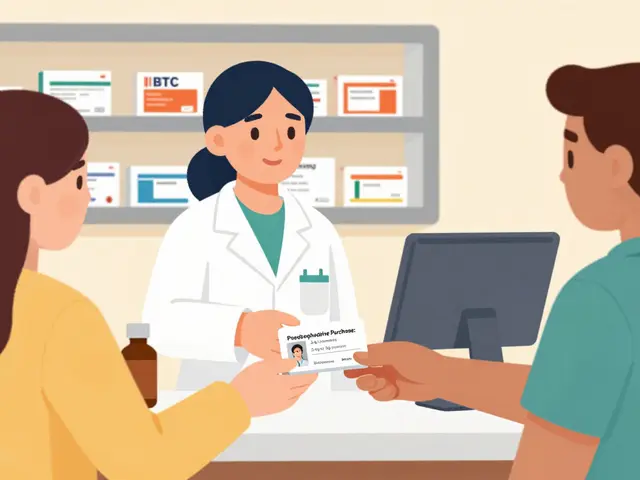Elderly patients: Practical medication and safety guide
Older adults react to drugs differently. Lower kidney and liver function, changes in body fat, and sensitive brains raise the risk of side effects. If you care for an older person or you are one, small checks can prevent big problems. Here are concrete, useful steps you can use right away.
Key medication risks for elderly patients
Polypharmacy is a huge issue. Taking many drugs at once increases interactions and confusion. Ask: does this medicine still need to be taken? A medication review can cut harm and simplify daily routines.
Certain drugs need extra attention. For heart rhythm problems, amiodarone (Cordarone) can cause lung, thyroid, and liver issues and needs regular tests. Dementia drugs like rivastigmine (Exelon) help memory but may cause nausea or slow the heart, so watch pulse and weight.
Nitrate medicines can lose effect over time and may cause headaches or low blood pressure. Blood thinners reduce clot risk but raise bleeding risk, especially after surgery or anesthesia. Talk to the team about timing and temporary stopping rules before operations.
Other frequent concerns: bone drugs like alendronate require correct dosing and checks for jaw or bone issues when used long term. Diuretics and blood pressure drugs can cause dizziness and falls. Even over-the-counter sleep aids such as doxylamine or antihistamines for vertigo like meclizine can increase confusion and fall risk in older adults.
Practical tips for safer medicine use
Keep one up-to-date list of all medicines, including vitamins and creams. Bring it to every appointment. Use a single pharmacy so they can flag interactions. Ask the prescriber for the reason each drug was started and how long it should be continued.
Request lab tests when indicated: kidney function, liver enzymes, thyroid levels, and drug levels if needed. Dose adjustments often depend on these numbers. If swallowing is hard, ask about liquid forms or simpler dosing schedules.
Watch for warning signs: new confusion, fatigue, dizziness, appetite change, weight loss, or falls. Those can be side effects, not 'just aging.' If you see them, call the prescriber and review meds right away.
Be careful buying meds online. Not all pharmacies are safe. Read real reviews, check for a license, and prefer sites discussed in our guides about safe online pharmacies and spotting fakes. We also have step-by-step articles on buying specific drugs safely if you need them.
Finally, set up simple tools: a weekly pill box, phone reminders, and periodic med reviews with a pharmacist or geriatrician. Small changes cut risk and keep older people independent longer.
Want deeper reading? Check our articles on Cordarone, Exelon, preventing blood clots after anesthesia, and how long to take alendronate for more details tailored to older adults.

Safety and Benefits of Melphalan for Elderly Patients: A Thorough Examination
This article explores the safety and effectiveness of Melphalan in elderly patients. Covering its uses, potential side effects, and practical tips for administration, the article aims to provide a clear understanding of Melphalan. Discover interesting facts about how this treatment works and its impact on the elderly population.
View More




